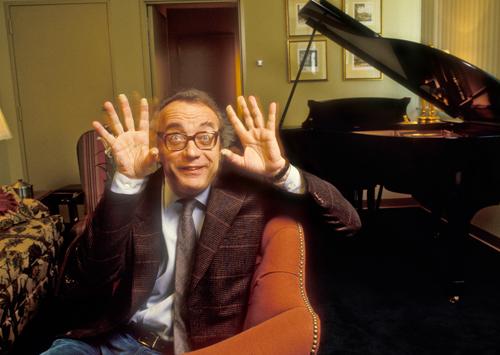Listen to New Voices on Studs Terkel our partnership with 826CHI-here! Read the Story
Showing 16 - 30 of 51 results
-
Interviewing Alec Wilder discussing his music and his book: American Popular Songs ; part 3
1980 Part 3. Alec Wilder and Harry Bouras discuss Wilder's book "American popular songs", published in 1972.
-
Interview with Thom Bishop
Sep. 27, 1990 Interviewing singer and songwriter Thom Bishop.
-
Interview with Marita Brake and Rhondal McKinney
Feb. 19, 1985 Discussing Illinois, its prairies, rivers and cities through music and poetry with singer and poet Marita Brake and documentary photographer Rhondal McKinney.
-
Interview with Larry Adler
Oct. 26, 1988 Discussing "It Ain't Necessarily So: An Autobiography" (published by Grove) with the author, musician Larry Adler.
-
Interview with Alfred Brendel
Apr. 28, 1994 Interviewing pianist, painter and essayist Alfred Brendel.
-
Holly Near discusses her book "Fire in the Rain--Singer in the Storm: An Autobiography"
Aug. 20, 1990 Singer-songwriter and activist Holly Near discusses her work for fighting for social justice through outlets such as her music. Near a prominent proponent for the LGBTQ community has streamlined her work using folk and protest-inspired songs. Near has been awarded multiple honors from organizations such as the ACLU and the National Organization for Women for her work for social change.
-
Harry Chapin discusses his career as a writer and singer and reflects on the stories behind his music
Mar. 31, 1975 Studs interviews Harry Chapin about his music and career. They discuss Chapin’s style of writing songs. Chapin describes some of his songs such as “Cats In the Cradle,” “Sniper,” “WOLD,” and “Mr. Tanner.” He stresses that his songs tell stories and often are influenced by real-life events. For example, “30,000 Bananas Pounds of Bananas” came from a trip he took on a Greyhound bus through Pennsylvania where there was a truck accident.
-
E. Y. (Yip) Harburg discuss his book "At This Point in Rhyme"
Feb. 18, 1977 E.Y. (Yip) Harburg and Studs Terkel read from the book "At This Point in Rhyme". E.Y. Harburg also discusses his thoughts on humanity, how to properly write a song, and the importance of light verse and humor as a basis for everything he creates. Excerpts of "Somewhere Over the Rainbow" by Judy Garland, "Brother, Can You Spare a Dime" by the Weavers, and a Broadway recording of "How Are Things in Glocca Morra" are played in the original airing but have been removed from this version for copyright reasons.
-
Discussing the work of Josephine Baker with Ivory Moss
Mar. 21, 1979 Program includes excerpts of performances by Baker.



